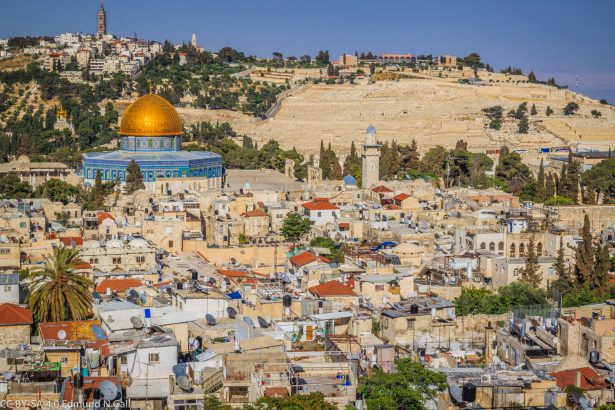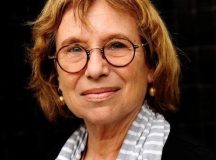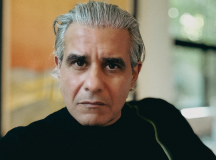Following news of a ceasefire in Gaza and the return of the 20 remaining living hostages, Fathom asked Israelis and Palestinians to consider issues that both peoples need to grapple with at this time. Paul Gross and Calev Ben Dor are writers who grew up in the UK and live in Jerusalem.
Self-criticism and trauma
‘Palestine for most of us was an emotion rather than a reality,’ an official in the British administration of Mandatory Palestine is quoted as saying in Tom Segev’s book One Palestine Complete. That quote remains evergreen almost one hundred years later. Whether it be placards that describe Zionism as expressing the worst ideologies of our time – genocide, racism, white supremacy, settler colonialism, apartheid; or college campus students marching to Free Palestine from the River to the Sea (without necessarily knowing which river and which sea); or even raucous discussions around the dinner table; the issue of Palestine too-often remains more emotion than reality.
There is a Jewish tradition of self-reflection, ḥeshbon nefesh, especially around the times of the High Holy Days. Yet emotions are harder to reflect on and critique. This process becomes even more complicated when considered from a place of trauma and suffering held by both Israelis and Palestinians. The foundational psychological trauma for many Jews – something the establishment of Israel was supposed to prevent – was the genocidal pogrom. For the Palestinians, the foundational trauma originated in their experience of mass displacement, the Nakba (a word originally referring to the Palestinians’ failure to destroy the nascent state of Israel but subsequently evolving into meaning the refugee crisis). Events over these last two years have recreated those foundational traumas – Palestinians on Israelis, and Israelis on Palestinians. Each people has been subjected to their deepest fears, lived through their darkest nightmares.
As we write these words, we consider the accumulated trauma of friends and family who fought in the IDF, those of us forced to wake our children and head to safe rooms as Iran fired hundreds of ballistic missiles, and our Palestinian friends with families in Gaza who have faced immense suffering. None of this eases either side’s ability to offer self-criticism.
From within that context, the idea of even conducting these conversations seems near-impossible. Let no one underestimate the ordeals experienced by the people of this region, nor fail to appreciate the Herculean task of reconciliation.
TO PALESTINIANS
We believe it neither useful nor constructive to tell the Palestinian National Movement what it needs to hear or where we feel it has gone wrong. Instead, based on our realisation of how difficult these conversations can be – as well as from our specific Israeli perspective – we humbly suggest questions that both sides should consider asking pondering.
Question 1: What is the conflict actually about?
For decades diplomats sought to craft a ‘solution’ to the Israeli-Palestinian conflict based around ending the occupation of East Jerusalem, the West Bank and Gaza that began in 1967. But most Israelis didn’t need the ‘pro-Palestine’ activists shouting ‘We don’t want two states, we want ‘48’ in order to internalise that the core of the conflict may not revolve around 1967 nor the occupation (without minimising how much pain that causes Palestinians living under it).
As the British Mandate drew to a close, Foreign Secretary Ernest Bevin quipped that while he felt the essential point for the Jews was the creation of a sovereign Jewish State, ‘for the Arabs, the essential point of principle is to resist to the last the establishment of Jewish sovereignty in any part of Palestine.’ Much has changed in the ensuing 80 years, but has this point?
Our fear as Israelis is that the mainstream Palestinian National Movement believe the conflict to be about, as per Segev’s book title, One Palestine Complete. When Palestinians demand historic justice, do they envision partitioning the land into two nation states – Jewish and Palestinian-Arab? Or do they mean reversing the creation of the State of Israel and the return of millions of grandchildren and great grandchildren of those who left, or were forced to leave, their homes that no longer exist? If the former, then there is something to discuss. If the latter, it is hard to see how compromise can be found.
This also relates to whether Palestinians recognise Jews as a people with deep connections to the Holy Land and deserving self-determination in some part of it? Here too, many Israelis have doubts. Several years ago, while speaking to American college students on a panel with a Palestinian East Jerusalemite, one of us was told that a) Jews are just a religion; b) it is the Palestinians who are the authentic descendants of the ancient Israelites; and c) almost all the current Jews in Israel are ‘settlers’.
When we (and our friends) have taken part in coexistence or peacebuilding programmes with Palestinians and have earnestly shared the belief in the mutually legitimate claims of both peoples to the land, we have rarely been met with an equivalent response from the other side. Most Palestinians engaged in these initiatives are critical of violence – including from their side – and are willing to live alongside Jews, but it is vanishingly rare to find Palestinians who will publicly state that Jews have a just claim to sovereignty in this land. For them, Zionism remains nothing more than a colonial enterprise.
We should be wary of concluding too much from anecdotes, but we are concerned this is indicative of something deeper. It is surely not coincidental that official Palestinian representatives will rarely, if ever, utter the words ‘two states for two peoples.’ They also seemingly have difficulty admitting Jews’ connection to the Holy Land. During negotiations in 2000 – after Arafat had denied a Jewish temple ever existed in Jerusalem – the Palestinian team also rejected a proposal to gain control over the Temple Mount because of wording that required them to commit to not dig underneath it ‘because the site is holy to Jews’. It begs the question as to whether the Palestinian National Movement recognises the legitimacy of Jewish self-determination, which would leave the argument as ‘simply’ one over borders? Or whether they consider Israelis settler colonialists who can be worn down and driven out through armed struggle?
How many Palestinians share the opinion of the late Israeli peacenik Amos Oz that the conflict was tragic because it is one of right against right. Or do they rather see it as one of cosmic good versus evil, oppressor against oppressed, settler against native?
Question 2: Has armed struggle and resistance brought national liberation closer?
To what extent to do the ‘pro-Palestine’ campaigners in the West who seemed to glorify violence – the ones who celebrated on 7 October (‘What did y’all think decolonization meant? Vibes? Papers?’ wrote one); those who immediately called for a ceasefire the moment the IDF responded; and who increasingly see supporters of two states as treacherous – represent the majority view within the Palestinian National Movement?
We feel the discussion over the efficacy of armed struggle is complicated. The first Intifada in the late 1980s was undoubtedly a major factor that led to the Oslo Accords (along with the PLO belatedly accepting UN Security Council 242 and denouncing terrorism). The experience of thousands of young Palestinians throwing stones and Molotov cocktails generated a process that convinced Israel that there was no such thing as a benign occupation, that controlling the alleyways of Khan Yunis was no longer practical.
Yet the Hamas inspired terror attacks of the 1990s caused skepticism about the Oslo process (Rabin was losing to Netanyahu in the polls before he was assassinated) and the Second Intifada of suicide bombings on buses, pizza parlors and night clubs dealt a death blow to the Israeli left from which it has yet to recover. Hezbollah taking over south Lebanon and Hamas carrying out a coup in Gaza after unilateral Israeli withdrawals further destroyed the Israeli appetite for territorial withdrawal. And that was before Israel was brutally invaded on 7 October from the very territory it had left twenty years earlier.
It is ultimately for the Palestinians to decide what strategy to pursue. Yet as centrist Israelis we humbly suggest that while ‘rights’ and ‘historic justice’ are important, at the end of the day, Palestinians will not gain independence unless moderate Israelis believe that independence will not threaten their children. It may be unfair, but it is us who need to be convinced we will be safer after withdrawal than before. Armed struggle in sovereign Israel waged by jihadists with eliminationist rhetoric does not do that. One reason for the widespread (almost consensus) scepticism among Israelis about the reliability of Mahmoud Abbas and the alleged ‘moderates’ as peace partners is their glorification of Palestinian terrorists, the ‘pay-for-slay’ policy (which the PA now claim to have ended), and the initial response of PA officials to 7 October – a combination of denial, justification and celebration.
TO ISRAELIS
Question 1: What is Israel’s strategy?
The terribleness of the last two years has not fundamentally changed the reality of two peoples living between the river and the sea neither of whom are going to disappear. Israelis will not flee in fear of Sinwar’s apocalyptic flood nor will Palestinians move (or be moved) to Libya or Somaliland to facilitate a Gaza Riviera.
Immediately following Israel’s victory in the 6 Day War, one cabinet minister questioned how to balance the moral, democratic, and security problems of not giving citizenship to West Bankers on the one hand, with the importance of maintaining strategic depth the area provided on the other. Another minister wondered how the international community – so opposed to anything that smacked of colonisation – would ever accept a plan for Palestinian autonomy rather than independence. Neither were matters clarified when the pro-settlement right came to power in 1977. As Dan Meridor explained in Fathom, Menachem Begin would not sanction annexation of the West Bank or Gaza without offering the Palestinians citizenship, yet he also insisted that Israel must never become a ‘Rhodesia’ or ‘South Africa’ with a minority ruling a majority.
Decades on, those same basic dilemmas remain.
In light of this, we should ask whether Israeli governments have a strategy? The belief in bilateral negotiations took a huge blow with the collapse of Camp David / Clinton Parameters and Second Intifada. The belief in unilateralism was undermined when Hamas and Hezbollah took over Lebanon and Gaza. Maintaining the status quo or ‘managing’ the conflict was shaken up by 7 October and the ensuing war, while the right’s dream of annexation has been vetoed by Trump.
Are Israeli governments keeping a window open for a future partition, or allowing (or encouraging) outposts to spread over every hilltop in the hope it won’t end in Balkanisation? Moreover, for the last three years, the topic of normalisation with Saudi Arabia has been on the table, a move that would help to legitimise Israel throughout the Arab and Muslim world. The Sunni Middle East is divided between Muslim Brotherhood supporting entities, such as Qatar, Turkey and Hamas, and forces of ‘stability’ such as the UAE, Saudi Arabia, Egypt and Jordan (and many would say the Palestinian Authority). Can Israel forge a strategy to strengthen the latter at the expense of the former? Or will the government of the day choose the continuation of the status quo in the West Bank over helping to design new regional strategic architecture and expanding normalisation?
Question 2: Who are we becoming, and can we question the conduct of the war?
Military operations in the high-density urban environment of Gaza following the Hamas massacres were uniquely difficult. They involved the IDF fighting against a terrorist organisation who not only cared little for Palestinian civilian casualties, but who were embedded in schools, hospitals and UN facilities, had access to hundreds of kilometres of tunnels, and were holding over 250 Israeli hostages. Any army would have found such a war challenging. None would have been able to cleanly distinguish between combatants and civilians.
Israel’s war against Hamas was also delegitimised and maligned by some almost immediately. On 13 October 2023 – as Israelis were still struggling to identify the different body parts of people brutally murdered by Hamas – Raz Segal in Jewish Currents was describing Israel’s response as ‘A Casebook Case of Genocide.’ Two weeks later, Cindy McCain, the executive director of the UN World Food Program, said people in Gaza were ‘literally starving to death as we speak.’ In mid-October 2023, as Israeli suffering was too-often questioned, doubted or outright denied, media sources immediately parroted Hamas talking points that an explosion near a hospital in Gaza had killed five hundred Palestinians. The UN recently whitewashed Hamas and its invasion, beginning its report on the war with the sentence, ‘On 7 October 2023, Israel launched its military offensive in Gaza, which included airstrikes and ground operations.’
The war was complicated and many immediately sought to undermine Israel’s actions. And yet… can we Israelis – from within our legitimate fear, trauma, and belief we were maligned – question how it was conducted?
In October 1982, the head of the Yeshiva Har Etzion in Gush Etzion, Rabbi Aharon Lichtenstein, wrote an open letter to Prime Minister Begin about the war in Lebanon. He described how over the Jewish High Holy Days – as he beat his breast as both an individual and as part of a collective for ‘the sin we committed before You of Aggressiveness’ [בחוזק-יד] he wondered what it could refer to. For Lichtenstein, that part of the Yom Kippur liturgy could not have been opposed to using force in general, because ‘Judaism does not ascribe to absolute pacifism.’ Rather, he concluded, it must refer to excessive force. Lichtenstein brought an example of the Torah forbidding someone to excessively flog a criminal, (by giving him more than the Biblically determined amount of 39 lashes). The reason for forbidding excess, he suggested, was that such a scenario was very possible in such situations.
Even a merciful and humane person, who would never dream of attacking another individual, might think and feel otherwise when he acts as the representative of the establishment of law and justice.
Because here was a situation of someone who seemingly ‘deserved’ punishment, the danger was that the authority – based on his self-perception of his righteousness – might go over the top. Therefore, according to Lichtenstein, the Torah explicitly warned of not ‘overdoing’ it, and stated that a person who exceeded the rules of punitive lashing would himself be liable for those lashes.
Lichtenstein then added something more radical.
From a certain perspective the person who adds to the requisite number of lashes is ethically liable not merely for the additional blows but for all those which preceded it. Because by the addition… he [demonstrates that] was not a sensitive individual who administered lashes regrettably but dutifully, out of a need to do what was needed for the good of society and the cause of justice, but rather an oppressive, tyrannical individual who delights in the opportunity to dominate another person, and who has found in his official role, an outlet and a legitimacy for those inclinations.
If those questions were good enough for Rabbi Lichtenstein – a bastion of the national religious community forty years ago – it should be good enough for us today. Adopting such an approach would not deny the real difficulty in fighting, nor the fact some in the international community sought to undermine Israel’s legitimacy to fight at all. Nor should it prevent Israelis from calling out the lies, exaggerations and rushes to judgement of so many in the international media and in foreign governments. But it would behoove Israeli society to ask whether there was a dangerous mainstreaming of the refrain that there are no innocents in Gaza. It would question whether cabinet ministers who called to starve Palestinians or expel 2 million people from Gaza had influence over the conduct of war, especially over the delivery (or sometimes non-delivery) of humanitarian aid. It would require considering whether – without besmirching the tens of thousands of IDF soldiers who left their homes and families in order to defend the state of Israel against existential threats – some actions in Gaza amounted to the sin of aggressiveness, driven by revenge rather than protecting our borders. And it would ponder in what way these experiences may have influenced the national character now that stage of the war is over.
Adopting both-ness
Few Israelis or Palestinians believe the conflict started on October 7, even while disagreeing when it did begin. We see the conflict as a combination of three key years: one is 1967, when in a defensive war Israel took control over the ‘territories’ on which 1.5 million Palestinians lived; the second is 1947 when the Palestinian-Arab national movement rejected the establishment of a Jewish state in Mandatory Palestine, (a step that led them to disaster); and the third is 1917, when after 400 hundred years of ruling vilayets and sanjaks in the multi-ethnic Middle East, the polyglot Ottoman Empire collapsed and several new countries – most of them with Sunni Arab majorities – were created in its stead.
The conflict is thus a mixture between Israeli occupation, Palestinian despair, and statelessness, often exacerbated by Israeli actions (1967); the Palestinian (and often-Arab) rejection of a partition that would create a Jewish nation state in the Middle East as well as the demand for the return of millions of ‘refugees’ (1947); and the inevitable challenges of a multi-ethnic region in the aftermath of Empire (1917). In our minds, it has been further aggravated by the celebration of armed struggle (who can forget the cheering crowds in Gaza as abused bodies – dead and alive – were brought into the Strip), and the increased Islamism within Palestinian society – and its eliminationist rhetoric.
As Hussein Agha stressed in a recent Fathom interview, the conflict isn’t just about territory. ‘It is about loss, betrayal, dispersal, history, religion. It is about all these things that are “messy.”’ Can Israelis and Palestinians move through this messiness from within our deep wellspring of trauma and suffering? Writing at a time when a ceasefire is taking hold but Gaza remains in ruins and Hamas refuses to disarm, we genuinely don’t know the answer.
Israeli public intellectual and author Micah Goodman once explained that Israelis and Palestinians argue over three things. The first question regards ‘who is a people?’ The second is ‘who is indigenous?’ (let’s call it possessing long-standing connections to the land). The third is ‘who is a victim?’
According to Goodman, even before the last two years that radicalised many, Israelis and Palestinians would often affirm their own peoplehood, indigeneity and victimhood while too-often denying the other (although a sea change of questioning national narratives and openness to the other took place in Israel in the 1990s that – to our mind – was not mirrored within Palestinian society).
A more useful and interesting conversation, however, begins when Israelis and Palestinians recognise both-ness – that in this tiny land between the river and the sea are two nations, both of whom possess long-standing connections to the soil and sites, both of whom have suffered greatly.
That does not solve the conflict. It remains deeply messy. But it provides a more effective framework to explore ways of at least alleviating it. We could do worse than starting a difficult conversation this way.



































